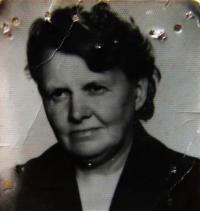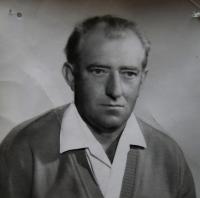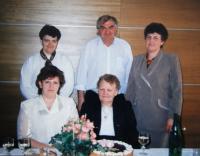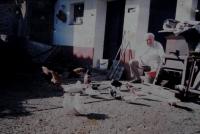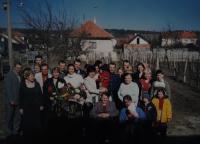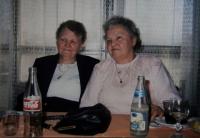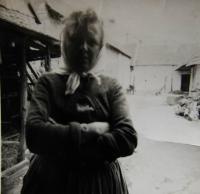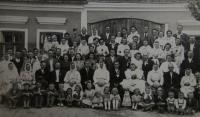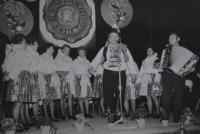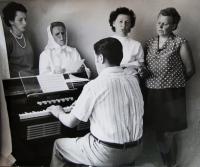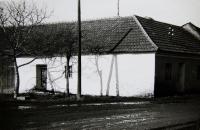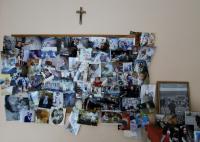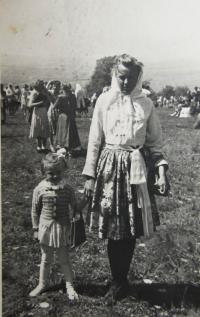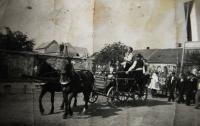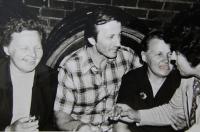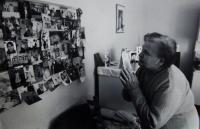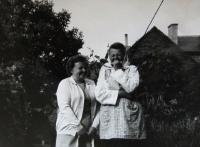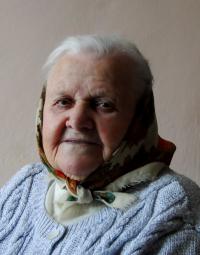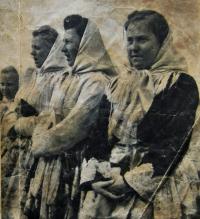Since my husband was a hard-working farmer, I was able to buy whatever I wanted

Stáhnout obrázek
Marie Vyskočilová, née Žitňáková, was born March 28, 1928 in the agricultural village Blatnice pod Svatým Antonínkem (Hodonín district) to Františka and Antonín Žitňák. Four years after completing her studies at a nine-year elementary school she married František Vyskočil, and she gave him a son and three daughters. She raised all her children in Catholic faith. Together with other large farmers in Blatnice, they were forced to sign their agreement with joining the Unified Agricultural Cooperative in the 1950s. Marie began working in the cooperative as a milkmaid and she remained there until her retirement. The Unified Agricultural Cooperative in Blatnice prospered and its employees frequently went on trips abroad. Marie Vyskočilová has spent her entire life in Blatnice and she was a member of the choir Marian Congregation. Marie Vyskočilová died on 16 May 2018.
